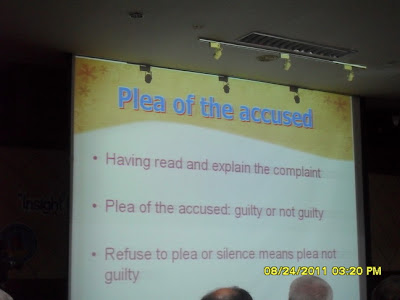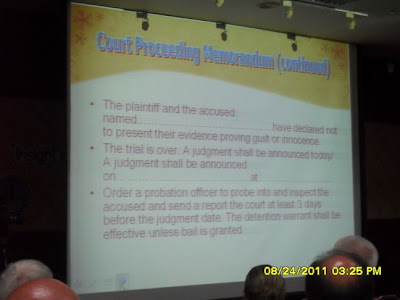Pope defends traditional view of marriage
Source: Iona Institute
Only marriages which are faithful and open to the gift of life are "adequate to the grandeur and dignity of  marital love," the Pope told young people at last weekend’s World Youth Day in Madrid.
marital love," the Pope told young people at last weekend’s World Youth Day in Madrid.
Speaking to one and a half million people from all over the world, Pope Benedict said that God "many people to marriage, in which a man and a woman, in becoming one flesh, find fulfillment in a profound life of communion".
The remarks were seen as yet another robust defence of the Church's teaching on marriage.
Marriage, he told them was a "project for true love which is daily renewed and deepened by sharing joys and sorrows, one marked by complete self-giving".
"For this reason, to acknowledge the beauty and goodness of marriage is to realize that only a setting of fidelity and indissolubility, along with openness to God’s gift of life, is adequate to the grandeur and dignity of marital love," the Pope added.
He also warned them that "the dominant culture of relativism all around us has given up on the search for truth, even if it is the highest aspiration of the human spirit".
For this reason, he said, young people needed to "speak with courage and humility of the universal significance of Christ as the Saviour of humanity and the source of hope for our lives".
He said: "We are not the product of blind chance or absurdity; instead our life originates as part of a loving plan of God.
"To abide in his love, then, means living a life rooted in faith, since faith is more than the mere acceptance of certain abstract truths: it is an intimate relationship with Christ, who enables us to open our hearts to this mystery of love and to live as men and women conscious of being loved by God."
He encouraged those gathered there to be afraid "neither of the world, nor of the future, nor of your weakness. The Lord has allowed you to live in this moment of history so that, by your faith, his name will continue to resound throughout the world".
The Pope has previously warned about the threats posed to marriage by alternative family forms, such as same-sex marriage.
And he has frequently spoken out about the dangers to religious freedom and the quest for truth resulting from what he has called "the dictatorship of relativism".
During his visit last year to the United Kingdom, the Pope warned about "aggressive secularism".
Speaking to an audience which included Queen Elizabeth, Pope Benedict said: "Today, the United Kingdom strives to be a modern and multicultural society. In this challenging enterprise, may it always maintain its respect for those traditional values and cultural expressions that more aggressive forms of secularism no longer value or even tolerate.
 marital love," the Pope told young people at last weekend’s World Youth Day in Madrid.
marital love," the Pope told young people at last weekend’s World Youth Day in Madrid.Speaking to one and a half million people from all over the world, Pope Benedict said that God "many people to marriage, in which a man and a woman, in becoming one flesh, find fulfillment in a profound life of communion".
The remarks were seen as yet another robust defence of the Church's teaching on marriage.
Marriage, he told them was a "project for true love which is daily renewed and deepened by sharing joys and sorrows, one marked by complete self-giving".
"For this reason, to acknowledge the beauty and goodness of marriage is to realize that only a setting of fidelity and indissolubility, along with openness to God’s gift of life, is adequate to the grandeur and dignity of marital love," the Pope added.
He also warned them that "the dominant culture of relativism all around us has given up on the search for truth, even if it is the highest aspiration of the human spirit".
For this reason, he said, young people needed to "speak with courage and humility of the universal significance of Christ as the Saviour of humanity and the source of hope for our lives".
He said: "We are not the product of blind chance or absurdity; instead our life originates as part of a loving plan of God.
"To abide in his love, then, means living a life rooted in faith, since faith is more than the mere acceptance of certain abstract truths: it is an intimate relationship with Christ, who enables us to open our hearts to this mystery of love and to live as men and women conscious of being loved by God."
He encouraged those gathered there to be afraid "neither of the world, nor of the future, nor of your weakness. The Lord has allowed you to live in this moment of history so that, by your faith, his name will continue to resound throughout the world".
The Pope has previously warned about the threats posed to marriage by alternative family forms, such as same-sex marriage.
And he has frequently spoken out about the dangers to religious freedom and the quest for truth resulting from what he has called "the dictatorship of relativism".
During his visit last year to the United Kingdom, the Pope warned about "aggressive secularism".
Speaking to an audience which included Queen Elizabeth, Pope Benedict said: "Today, the United Kingdom strives to be a modern and multicultural society. In this challenging enterprise, may it always maintain its respect for those traditional values and cultural expressions that more aggressive forms of secularism no longer value or even tolerate.





































































